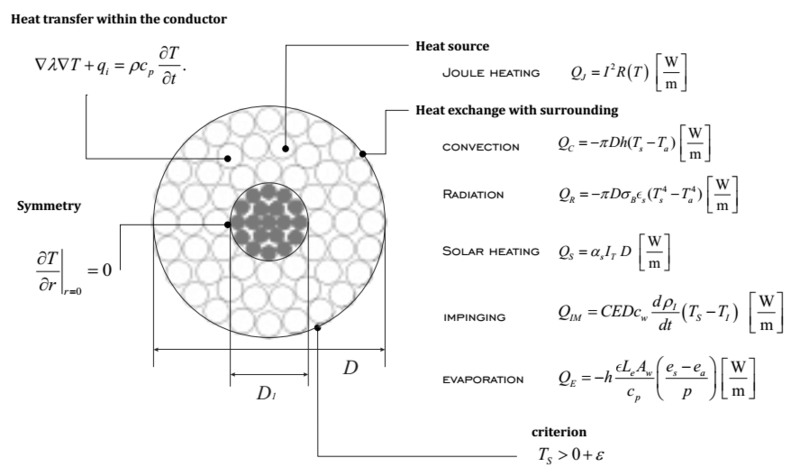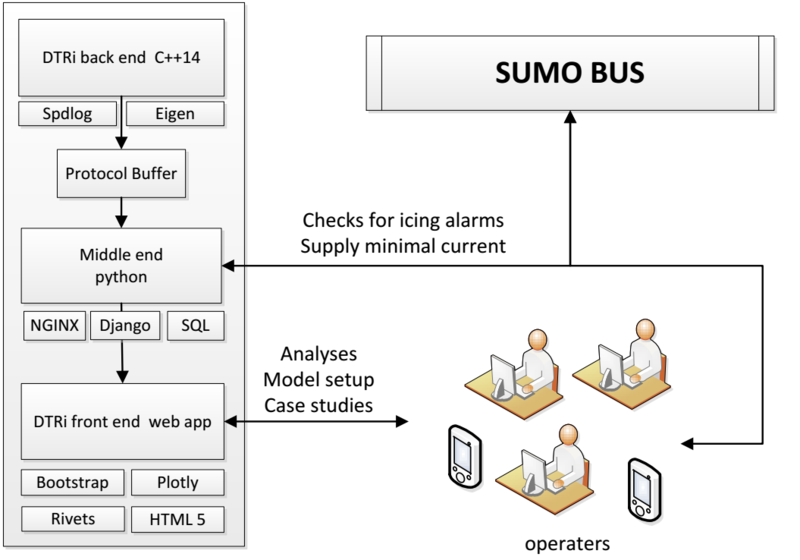Difference between revisions of "Dynamic Thermal Rating of over head lines"
| Line 3: | Line 3: | ||
The model considers a dynamic heat generation within the conductor and heat exchange with the surrounding. The model is validated by comparison of skin and core temperature with measurements under realistic environmental conditions. | The model considers a dynamic heat generation within the conductor and heat exchange with the surrounding. The model is validated by comparison of skin and core temperature with measurements under realistic environmental conditions. | ||
| − | <figure id="dtr1"> [File:image_1avhribvbu521ot91qj3onlivf9.png|800px|<caption>Scheme of the model</caption>] </figure> | + | <figure id="dtr1"> [[File:image_1avhribvbu521ot91qj3onlivf9.png|800px|<caption>Scheme of the model</caption>]] </figure> |
| − | [[File:image_1avhrtmm9lesvm6mft1kqvblh9.png|800px | + | [[File:image_1avhrtmm9lesvm6mft1kqvblh9.png|800px]] |
Revision as of 22:21, 20 October 2016
In February 2014 a severe icing storm hit Slovenia, and caused damage in order of 8.5 million € only on the power transmission network. In cooperation with Milan Vidmar Electric Power Research Institute (EIMV) and Slovenian Environment Agency (SEA) we developed and validated a DTRi model (Dynamic Thermal Rating - icing), which was implemented as a prototype system for operative forecasting and prevention of icing on high voltage transmission lines. We have validated the prototype system with measurements on an experimental site and through reconstruction of two real cases, on 1.2.2014 and 5.1.2016 on Beričevo-Divača line. The results of the study are promising, and therefore the customer decided to promote the system into the operative SUMO environment. For this purpose we also obtained additional founding from EU FP7 TETRACOM project. Both projects are led by members of our program group, while the customer is the company ELES.
The model considers a dynamic heat generation within the conductor and heat exchange with the surrounding. The model is validated by comparison of skin and core temperature with measurements under realistic environmental conditions.

